Green onions, also known as scallions, are a bright and beautiful veggie in the Allium family that adds flavor and flair to a variety of recipes.
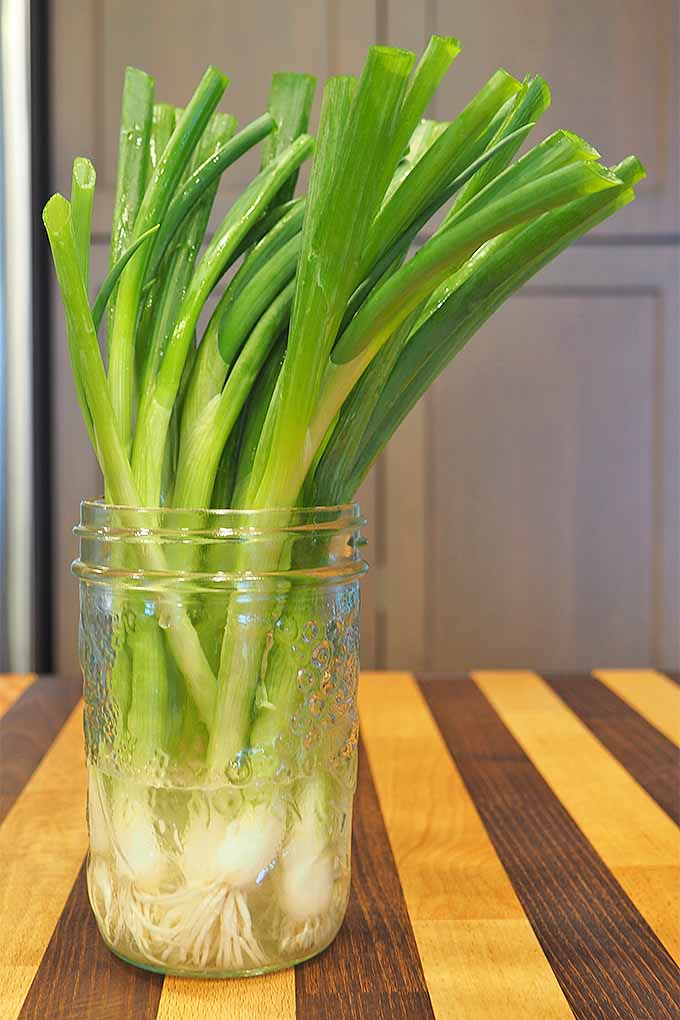
Featuring the mildest flavor of all alliums, all parts of the green onion are used, including the tubular leaves and small, immature bulbs – unlike close cousins such as garlic, leeks, and shallots that use only the bulb.
The entire scallion can be eaten fresh as well as cooked, and used in an assortment of dishes from salads to stir fries – and they make a pretty garnish as well!
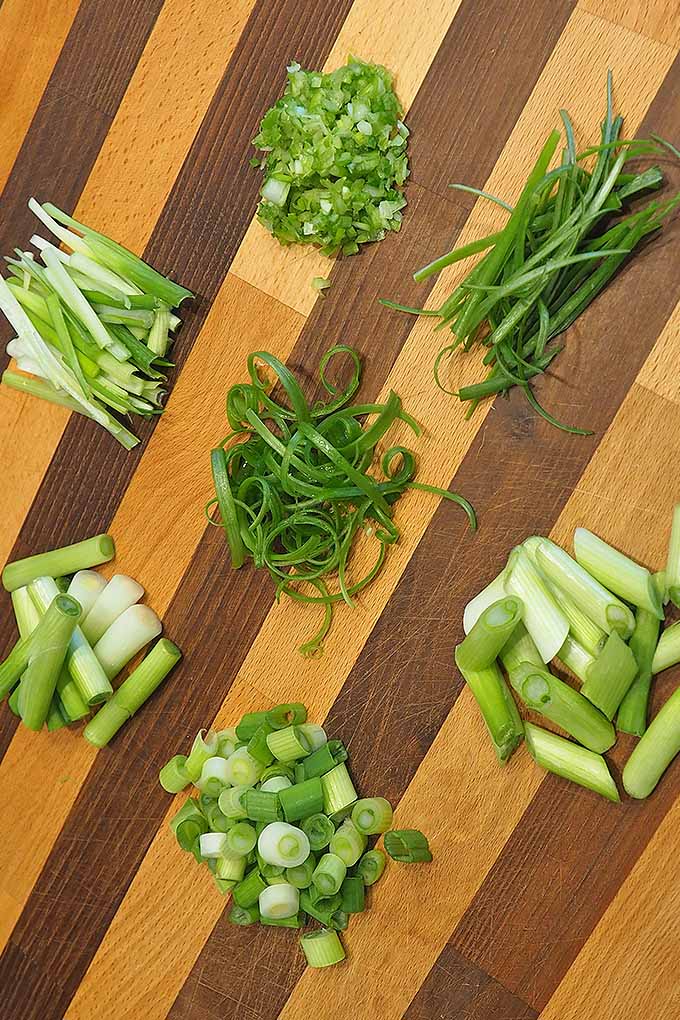
The green portions also offer a flavorful option for those adhering to a low FODMAP diet plan.
The white bulb is fibrous and has a stronger onion taste than the hollow leaves. This makes the bulbs more suitable for cooking, while the delicate-flavored tops are better used to finish a dish. Raw, their flavor is lightly piquant, but they do sweeten up nicely in cooking.
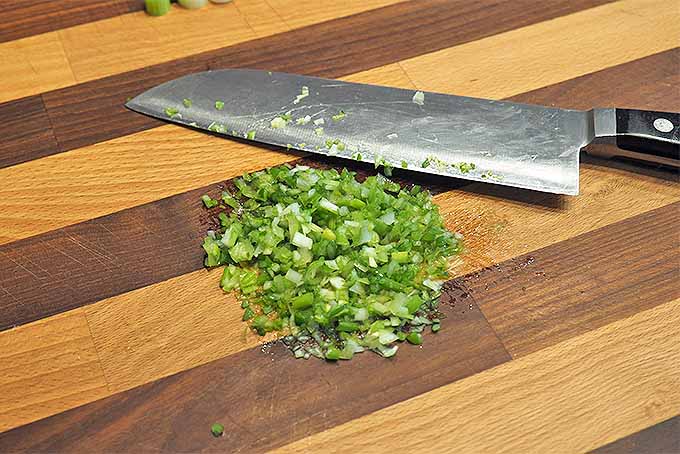
However, not all recipes are clear on how to use them, and confusion can ensue over whether to use just the tops, the bottoms, or the whole thing.
So, to get the most out of these pleasantly pungent veggies, let’s have a closer look at how to select, store, prepare, and chop green onions!
Selection and Storage
Inexpensive and available year-round, scallions are sold in bunches that will last for 1 to 2 weeks in the refrigerator.
Choose bunches that have vibrant, fresh leaves and firm white bulbs with the roots still attached.
If you find they’re spoiling quickly, you may want to change how you’re storing them.
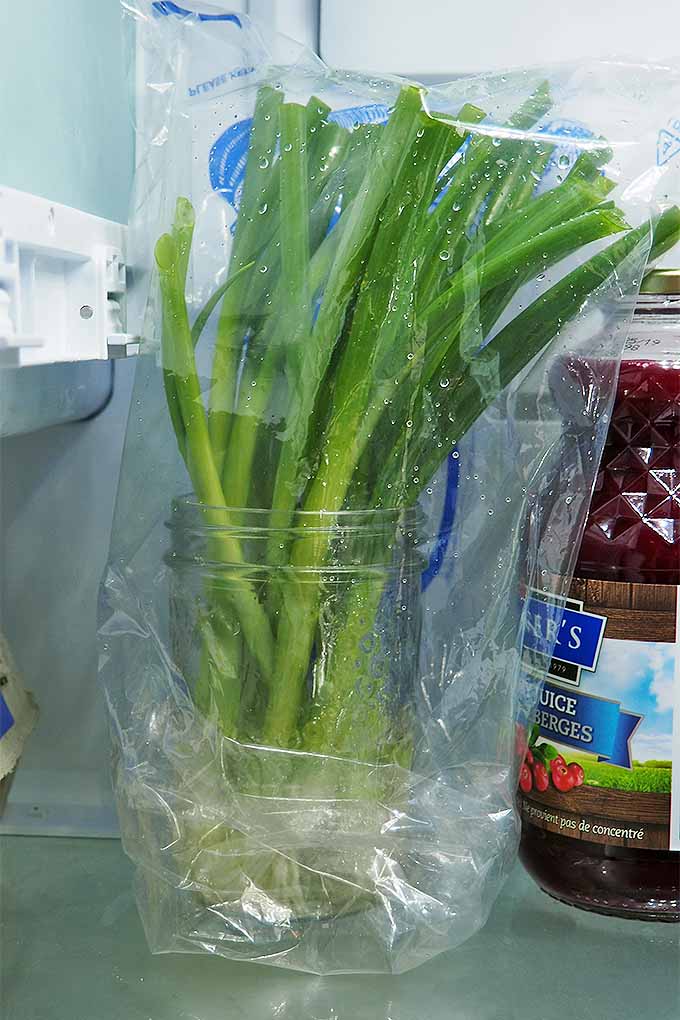
For long-lasting freshness, untie the bunch and trim the roots if needed. Place in a jar that’s about 5 to 8 inches tall, and add a couple of inches of water – just enough to cover the roots and bulb.
Drape a plastic bag loosely over the top of the leaves, allowing some air to circulate.
Tuck into a back corner of the fridge so they won’t get knocked over, and change the water every couple of days to keep them at their best.
Preparation
Trim off the top 1 to 2 inches, then rinse under cool running water.
Lay several together on a cutting board, aligning the root ends. Using a chef’s knife, trim off the roots.
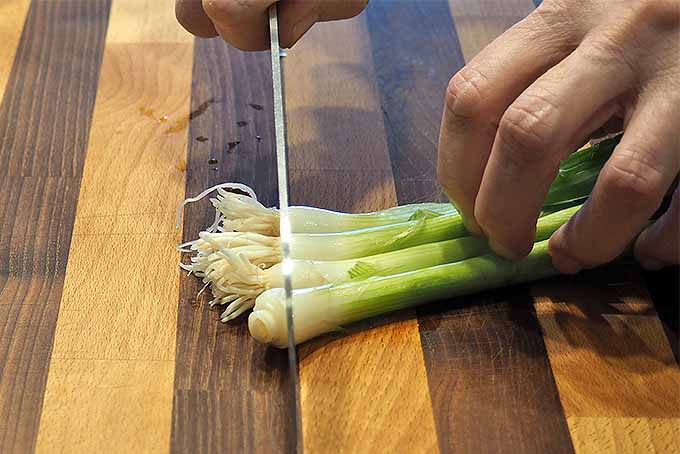
Remove any older outer leaves that have become dull or discolored. Grasp the stem just above the white section and peel down to the cut end, removing any of the slippery membrane that remains. Or, simply slice off the old leaf just above the bulb.
Slice as desired, using the following suggestions as a guide.
The Chop Shop
Dishes that call for raw scallions, such as salads, can use both the white bulbs and green tops cut into small slices 1/8 to 1/4-inch thick.
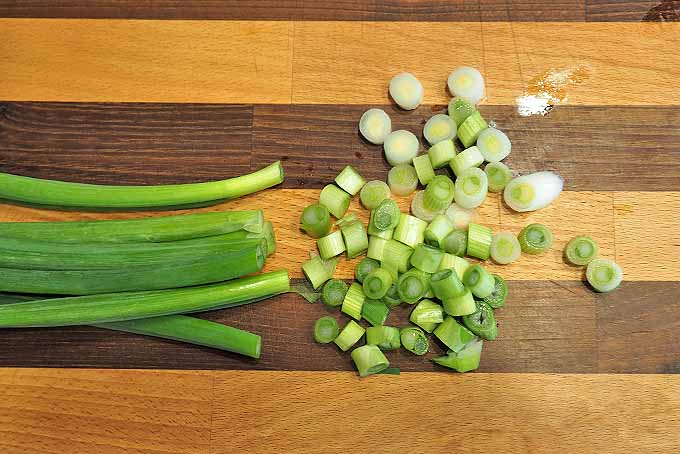
This size is also good for adding to omelets and fritters, mixing with rice or noodles, and garnishing soups.
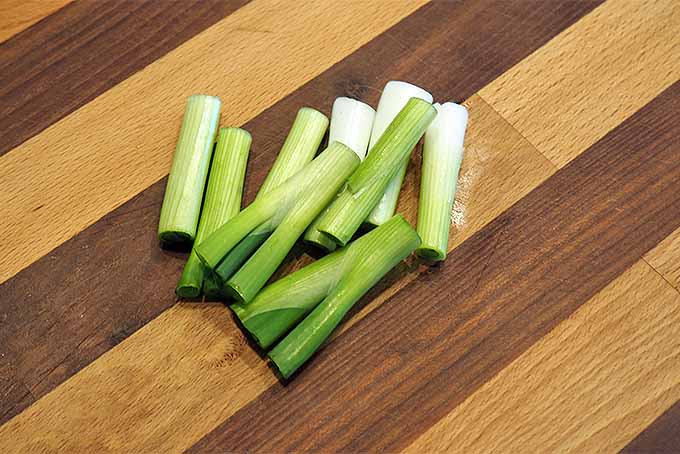
For yakitori skewers, kabobs, stir fries, tempura, frittata, or roasted root vegetables, cut with a straight edge into 1 or 2-inch sections, using only the solid bottom section.
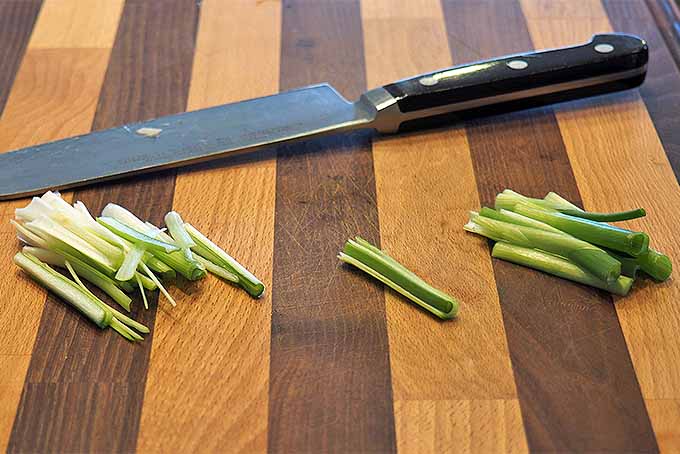
To julienne scallions, start with 1 or 2-inch pieces. Cut lengthwise into halves, then quarters or eighths as desired, and use in miso soup, dumplings, pickles, and relish. Use both white and green sections for a julienne cut.
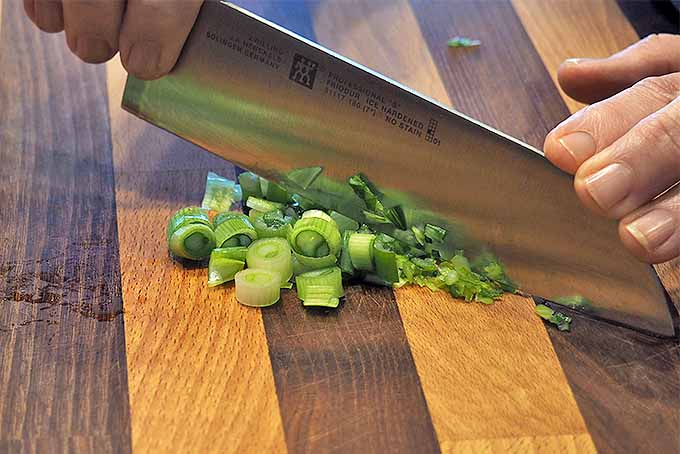
Use a rock chop on small pieces of tops and bottoms to create a fine mince for addition to sandwich spreads, compound butters, and double-baked potatoes.
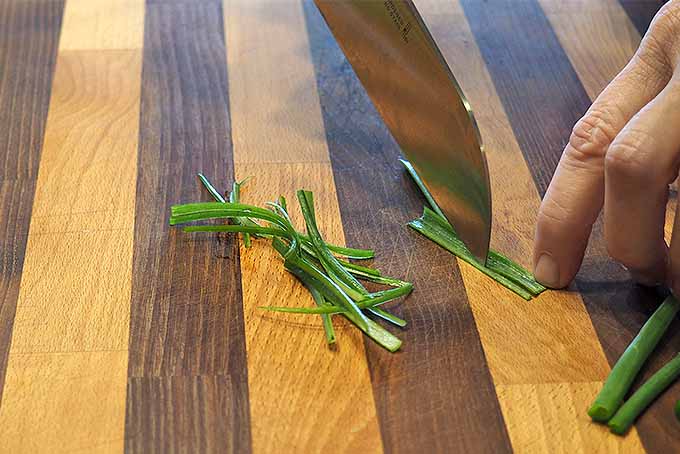
To create a delicate garnish, cut into 3-inch sections, then use the knife tip to slice into fine threads. This can be done with both colors mixed together, or each color separately.
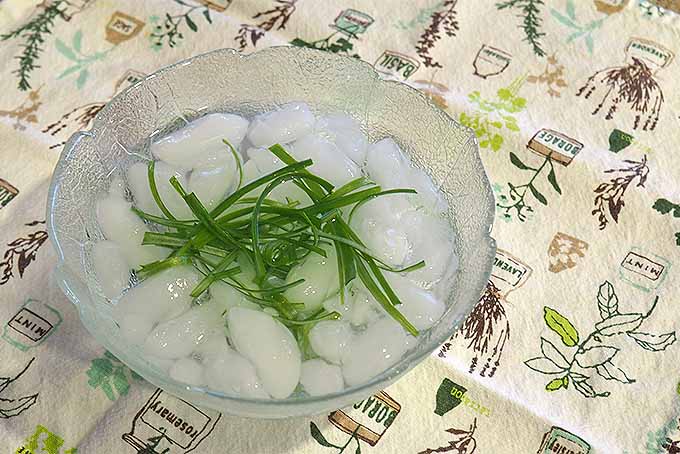
To curl the threads, chill in a bowl of ice water for 30 minutes. Drain and lightly pat dry before adding as a final touch to grilled meats, egg dishes, dips, or soups.
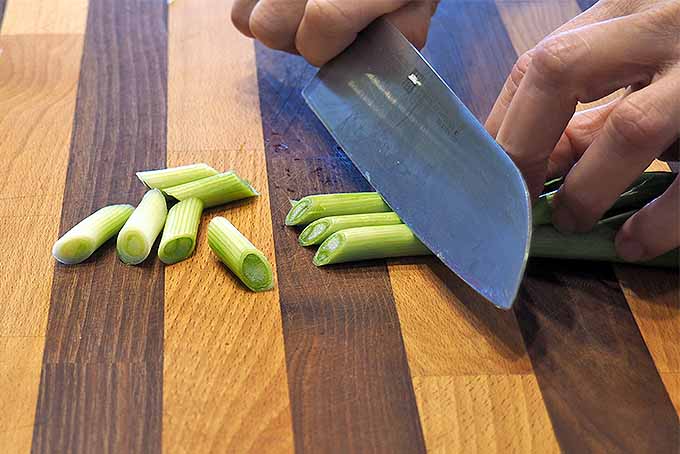
For a pretty bias cut, slice the bulb section on a 33 or 45-degree angle into pieces 1 to 2 inches in length for use in Buddha bowls, salads, or on a raw vegetable tray.
And They’re Good for You!
Like all types of onions, scallions are nutrient dense, and regular consumption may promote a hoast of health benefits.
They provide good to very good levels of vitamins, minerals, and phytochemicals. They’re rich in vitamin K, have very good levels of vitamins A, C, and folate as well as dietary fiber, plus good levels of calcium, iron, magnesium, manganese, phosphorous, potassium, and riboflavin.
Vitamin K plays an important role in bone health, as does the antioxidant vitamin C. Another antioxidant, vitamin A, plays a key role in maintaining eye health.
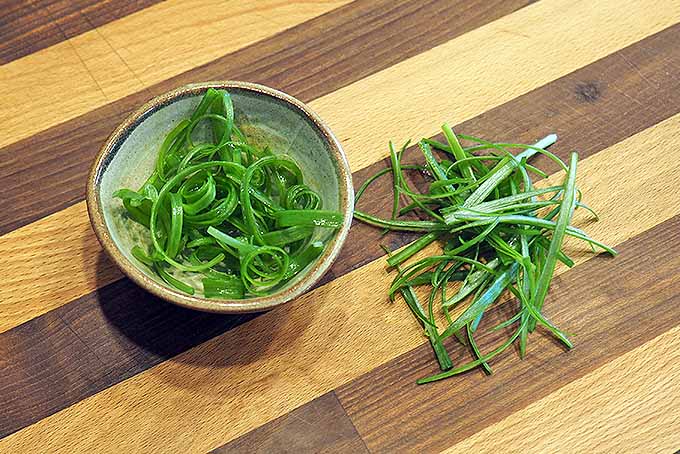
And foods rich in these antioxidants, along with the abundant flavonoids quercetin and anthocyanins, are linked to a healthy heart, as well as providing immune system protection.
Plus, the bioactive sulfur compounds found in all alliums have known cancer-fighting properties.
Not only are these tender spring veggies pretty and pungent, they’re powerful too!
A Versatile Veggie
Tops, bottoms, and everything in between, the green onion is a versatile veggie that provides a tasty, healthy, and visually pleasing addition to a host of recipes!
Chop them as you like, and use them raw or cooked, as a main ingredient, an accent flavor, or for a touch of elegance to finish off a dish.
And remember: store them in water to prolong their freshness.
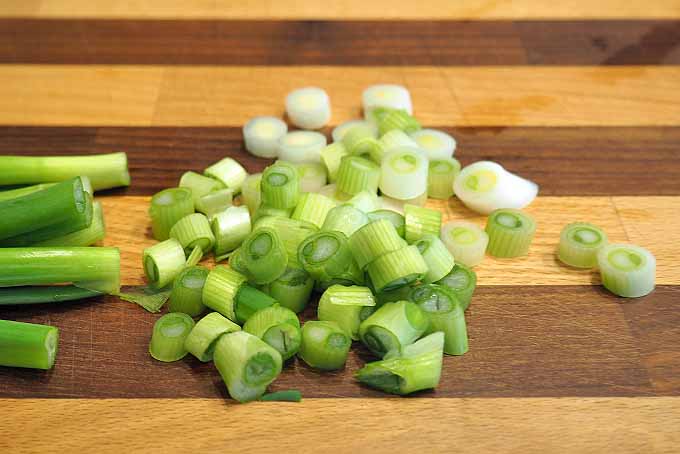
Do you readers have any favorite recipes that feature green onions? Let us know in the comments below! And check out our other recipes that use scallions, like these delicious salmon burgers and mini frittatas.
Don’t forget to Pin It!
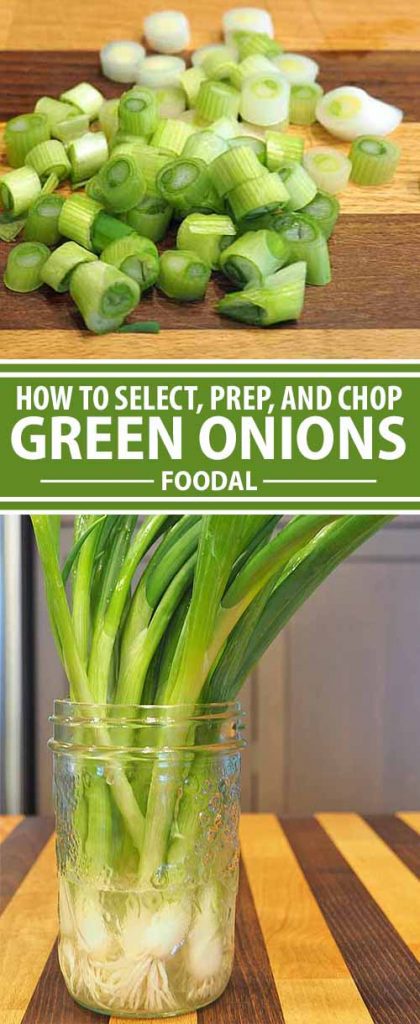
Photos by Lorna Kring, © Ask the Experts, LLC. ALL RIGHTS RESERVED.See our TOS for more details.
The staff at Foodal are not medical professionals and this article should not be construed as medical advice. Foodal and Ask the Experts, LLC assume no liability for the use or misuse of the material presented above. Always consult with a medical professional before changing your diet, or using supplements or manufactured or natural medications.
About Lorna Kring
Recently retired as a costume specialist in the TV and film industry, Lorna now enjoys blogging on contemporary lifestyle themes. A bit daft about the garden, she’s particularly obsessed with organic tomatoes and herbs, and delights in breaking bread with family and friends.



